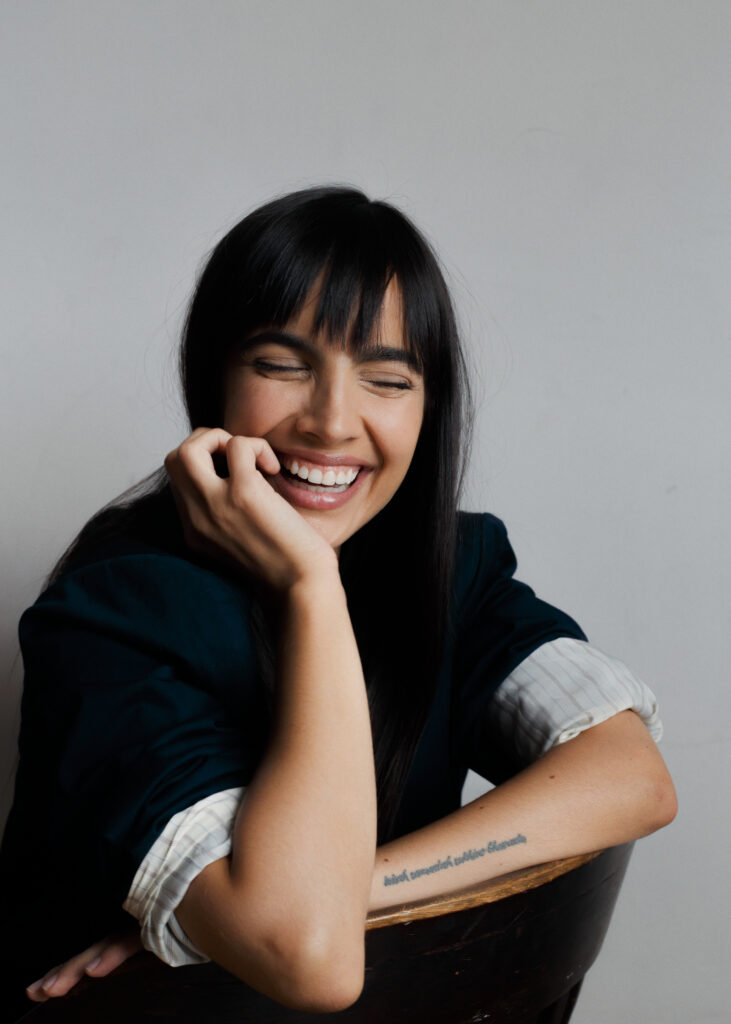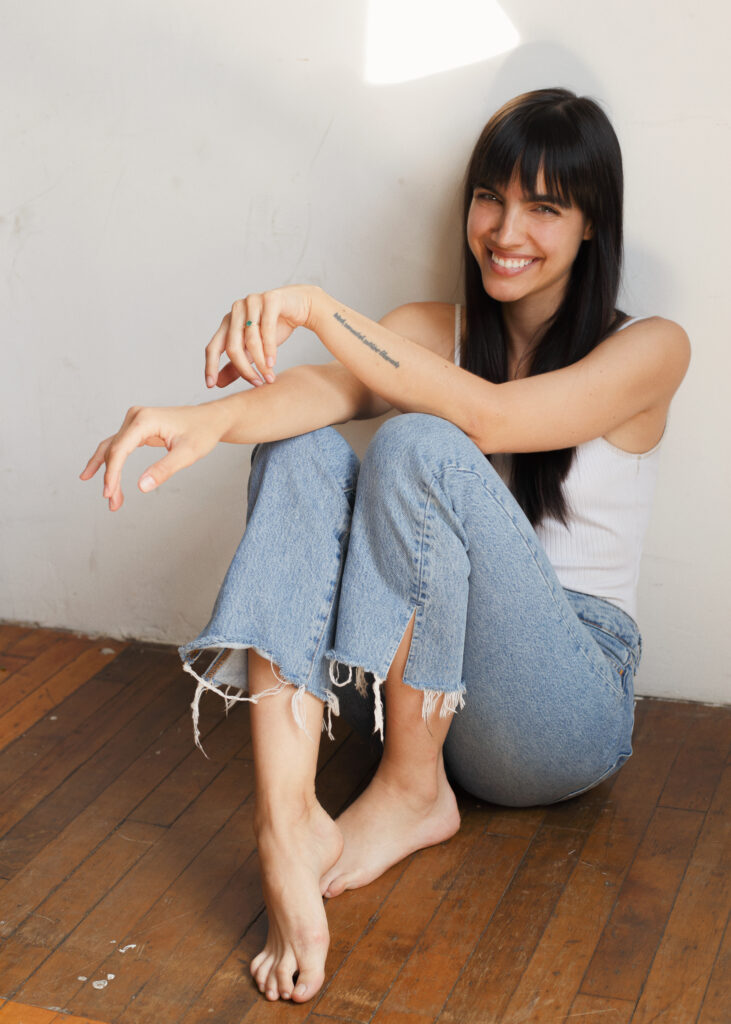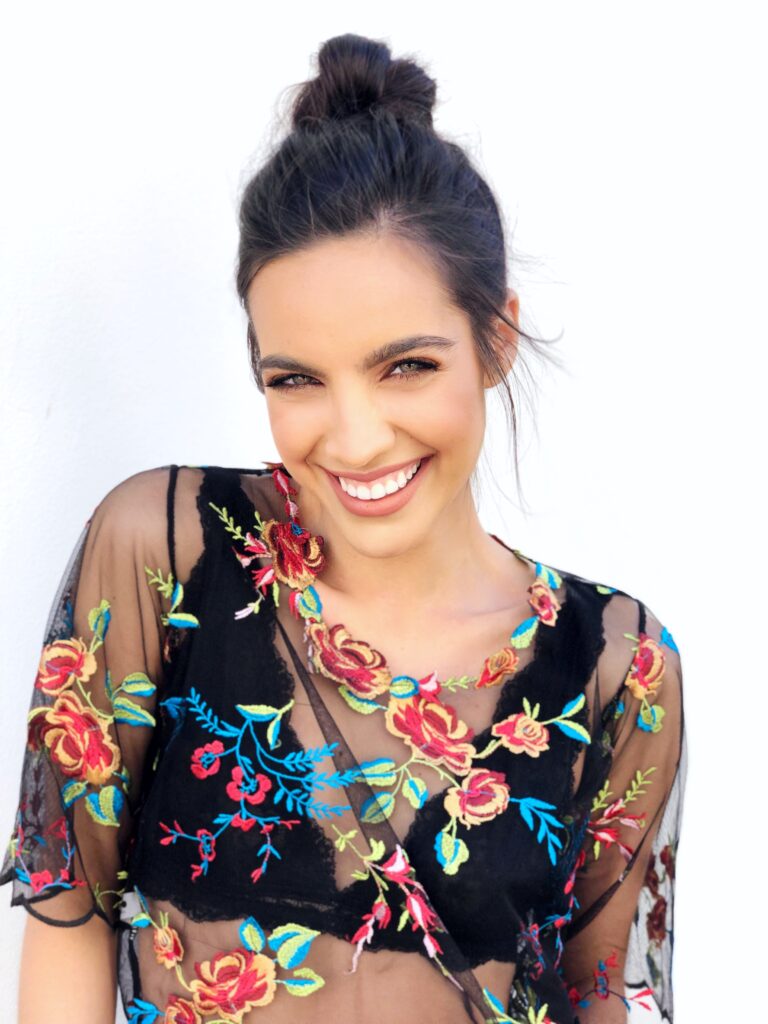Interview: María Gabriela de Faría
As we do our best to provide our readers with new content, we have decided to start doing an interview segment, albeit with a twist. In these interviews, we wish to speak with the person behind the role(s) and not only about said performances. We truly want to have a conversation, instead of running down the same list of questions over and over again. For this first article, we enjoyed a hearty chat with the lovely Mrs. María Gabriela de Faría. Even though she has been in the spotlight for many years, most of us will know her from the now-canceled series Deadly Class.
Did not see it coming
After a short but very pleasant introduction, we sadly had to address the elephant in the room: the cancellation of Deadly Class. With the influx of canceled series the last few years, we were curious if Mrs. de Faría saw it coming, or was even notified in advance for that matter.
“You go through the stages of grieving. I remember I got really sad, and then I got really mad. There are so many bad shows out there, that have many many seasons. And I cried, and then I remember I was the first one that was in denial. I remember we got together probably two weeks before they cancelled us, for promoting the show for the award season. We got so close to getting nominated for different awards. We were like wishing it, right? And we went out for lunch after one of our promos and I remember I was with Rick Remender and the head of costumes and they were like ‘no, I think we’re going to get cancelled’ and I’m like no, this is impossible, this will not happen; and then it did, and it was really sad. So, no, we did not see it coming.’’
Even though she has accepted the cancellation, it still saddened her. It was clear that even though these acting jobs come with a paycheck, the person that is playing the character can truly get attached to the project. It’s not always a matter of simply moving on when getting emotionally involved with a grand project such as this.
A lot of support
On the topic of Deadly Class, we also had a short conversation about her character, Maria, on the show, who is dealing with her bipolar disorder. This is something we were curious about as to how one could dive into such a role, as well as how the fanbase responded to it.
“Where every other character had to be calm and collected, I had the chance to do whatever I wanted and be. And I also found that within my own personal life and my own way of dealing with situations in life, it was really cathartic in a way. Whatever I was going through, it was what the teacher used to tell you that you have to use whatever is happening in your life in your favor. So, whatever was happening; I was tired, I was sad, I was nervous, I used what Maria was going through; when she was off her meds to go there. That was fantastic, and I think I did receive a lot of messages during the first season from people saying: I have bipolar disorder and wow, I feel represented and I feel seen, and I have never seen a character like this. That was not something I thought about before going into the show. So, it was a good surprise, and people liked it. I didn’t know this before, but there aren’t many characters that deal with mental illness in that way, that openly. So, this was pretty badass and pretty cool.”
We did see that this role was absolutely an amazing experience to delve into, and as we ourselves commented, it made Maria stand out in the show, becoming perhaps one of the most normal characters. In a school that revolved around training the world’s best assassins, she simply wanted to lead a normal carefree life.
Freedom of choice
Even though we could have continued our conversation about Deadly Class for quite some time, be it because of the wonderful characters, the overall story, or the production quality, there was a lot more to discuss. María is a believer in a very simple principle: ‘Freedom of choice’. When asked what this entails, we were given a very interesting and humble explanation.
“I have been part of the polarization and I have been ‘that’ vegan. When I first went vegan, I didn’t do it because of my health or because of the planet, I did it because of the animals. It’s as simple as that. I didn’t really care if I was healthy or not, I just saw something awful happening to beings that have families and emotions, and I felt really shitty and I didn’t want to be a part of it. And I guess when you see something that maybe other people aren’t seeing like you are, you want to wake everybody up. I think that’s natural, that’s normal and it’s the sign of a healthy mind and heart.
BUT, I think it’s also important to move away from that as fast as you can. I didn’t really move away from that that fast, I stayed there for like a solid four years just trying to change people’s minds because I thought I was saving somebody: the animals. When you have that savior complex, things get really complicated and you end up being a bit delusional, because nobody needs saving; not even the animals that can’t speak for themselves. At the end of the day, people are going to make the choice they are going to make and the only thing we can do is choose for ourselves and be at peace when we go to bed at night, saying to ourselves: I did what I wanted to do, what is aligned with my truth and with my values. Other than that, you can’t really do much.
I think it’s important to just lead by example. That’s the strongest thing you can do. That’s how it happened with my husband. He is not completely vegan, as he started eating eggs, but from a specific farm that he likes and where we ‘know’ the chickens. But he just did it on his own. It’s the same for my mom, and my brother. When I try to push my beliefs on somebody else, it doesn’t really work. I think everybody knows exactly what they need, and I can’t be the one to tell people you should go vegan, because it’s going to be better for you, because I don’t really know. There’s no way for me to really know that. I know for me, it’s the compassionate thing to do and it would be great for all the animals in the world not to be killed. But I don’t really know if that other person would be better off on a vegan diet. I can’t be that stubborn or delusional.”
Even though during the discussion of this topic, there were many things to say, be it around animal cruelty, that some cultures only eat meat to celebrate certain events, and that some people may not necessarily be better off with a vegan diet, we also saw Mrs. de Faría very much at peace with her choice and lifestyle. We loved the humble approach, as well as her description of how she came to those simple words: ‘Freedom of choice’. We found this way of leading by example absolutely admirable and it did leave a lasting impression.
Forever home
As Mrs. de Faría was born and raised in Venezuela, we were curious about how she experienced living in the United States. Before moving there, she had already worked up an impressive resume starring in the award-winning Isa TKM, a very popular Spanish Nickelodeon show. After that she starred in impressive shows like Sitiados (Besieged), to eventually end up as one of the main characters of Deadly Class, and soon we’ll see her star in The Exorcism of God, a horror movie we’re looking forward to watching. That being said, swapping between Latin-American projects and US-based projects is something that feels hard to pull off.
“I’ve been here for a while now; for like six years, and I think I’m used to it. It’s more shocking when I go back to my country or when I go back to South America, because I remember how things work there and what is actual normal for me. And it gives me that feeling of ‘this feels good, this feels better, this feels more comfortable’. I guess whenever I’m here (States), my body and mind protects me in way that I don’t really see the difference. Because if I do look at the difference too much, I guess I’ll get uncomfortable, I’ll get sad. The mind has ways of protecting you and make you feel good.
However, I love it here, I decided to make my life here and I’m so grateful to this country. I love this country. I have friends and family here, that I have made for myself, but, it’s not my home; and it will never be. My home is Venezuela, and as much as I try to make this my home, it is not. The sooner I realize that this is not my home, I feel like I can honor both places better.”
Once again, what was said above shows that to become an actress, it’s not a matter of raking in the cash. We see a very personal side to this choice, as Mrs. de Faría had to choose between her home and what she wanted to pursue. It’s clear that she is battling a certain feeling of homesickness, while also being very content with her fairly new home. It does take a lot of courage to just move to a different country. Nonetheless, Venezuela is clearly her forever home, and it’s nice that she does look back fondly to her roots.
Conclusion
Over the course of our very lengthy chat, we discussed many different items. These varied from the aforementioned cancellation of Deadly Class, her future movie project The Exorcism of God, to simply her vegan lifestyle, her life in the US, and how she grew up in Venezuela. We learned a lot from this rising star. It was extremely fun to have a simple down-to-earth conversation, getting to know the person behind the role(s). There is still a lot more content we could have included in this article, but sadly, it would have become slightly too long to read. We hope to have a fun conversation again with Mrs. de Faría in the future, sharing new insights, as well as new projects.
Interview: María Gabriela de Faría,







No Comments